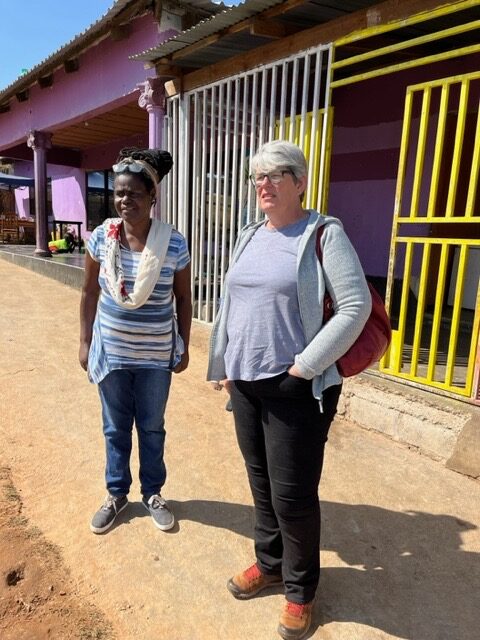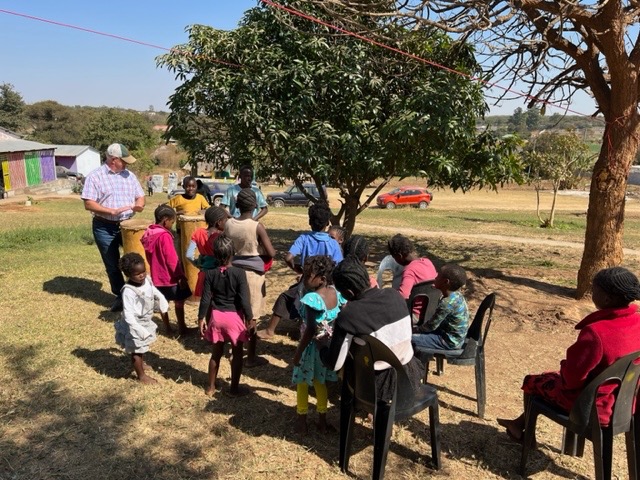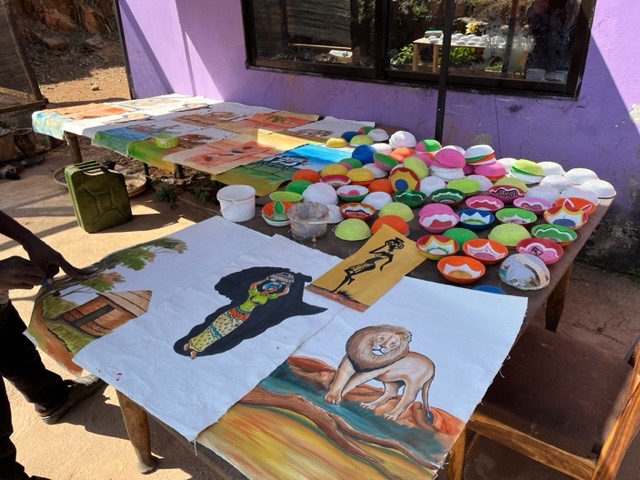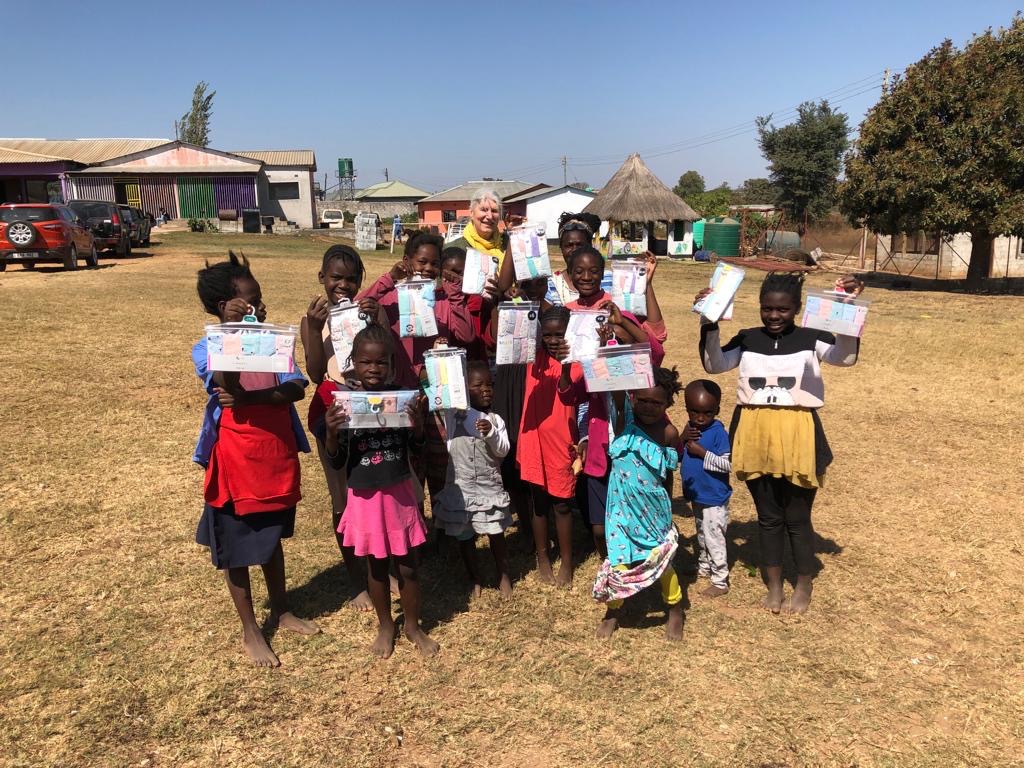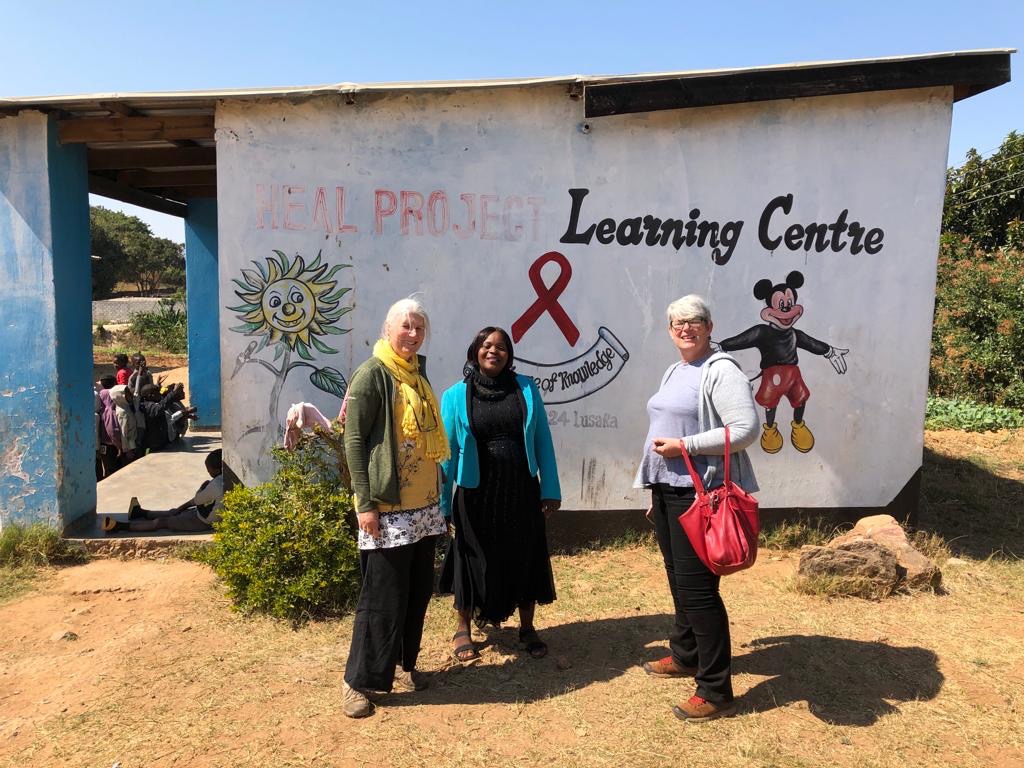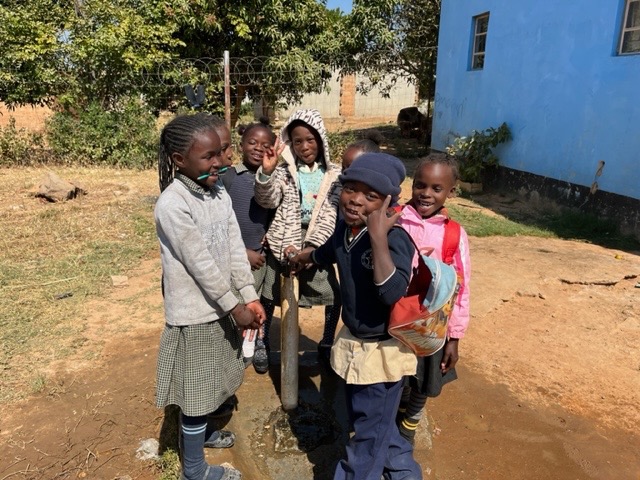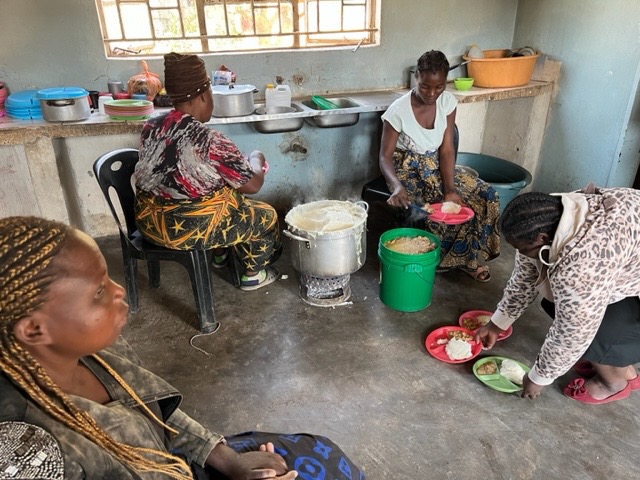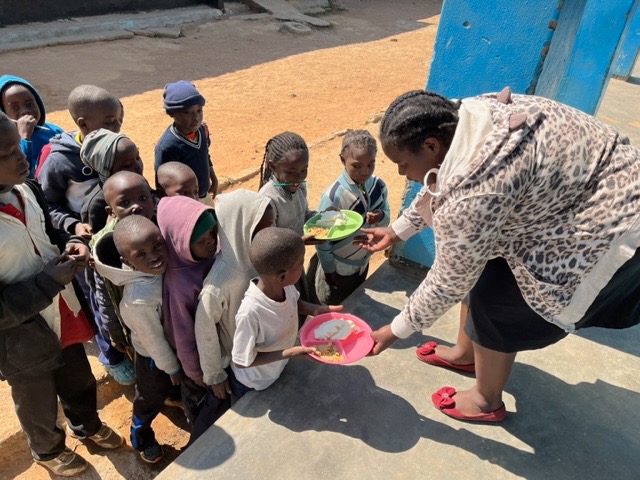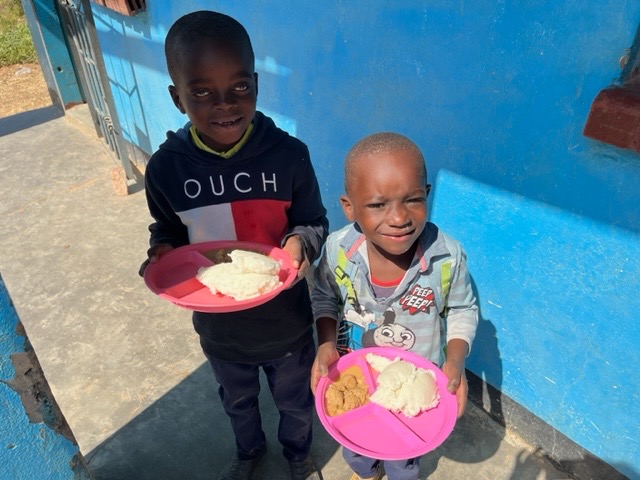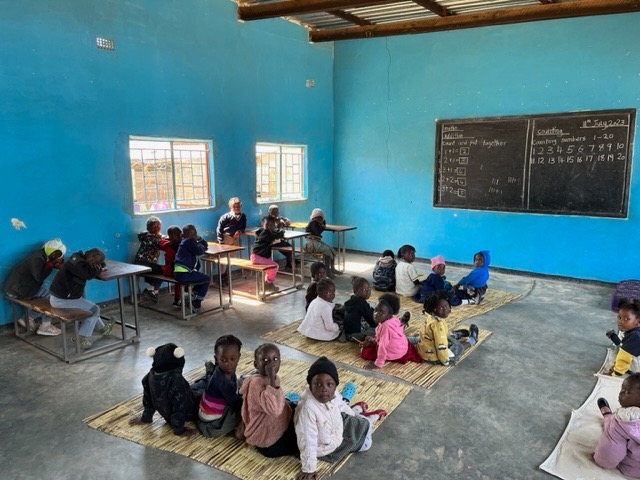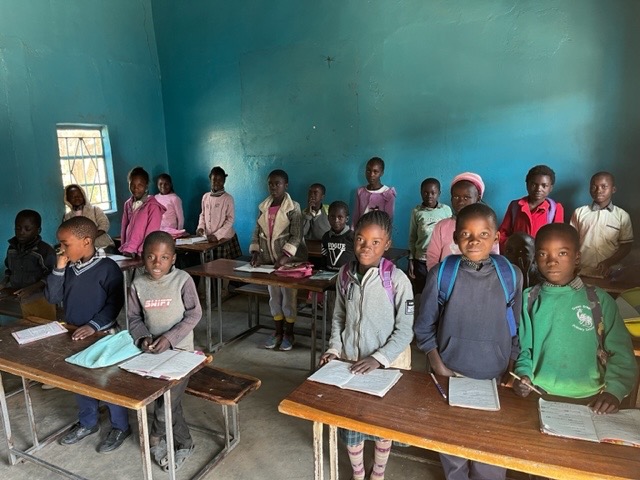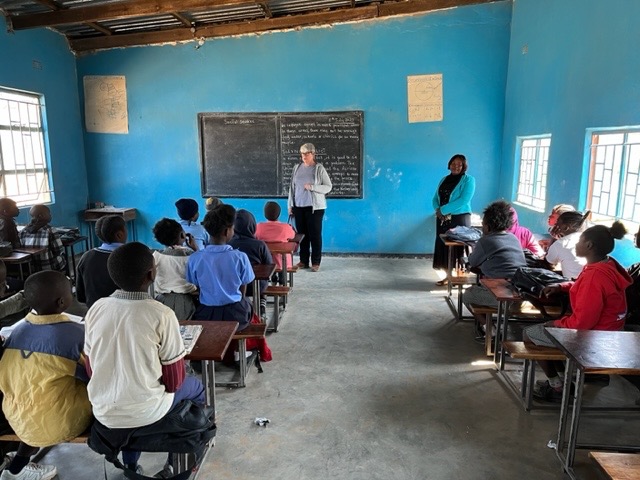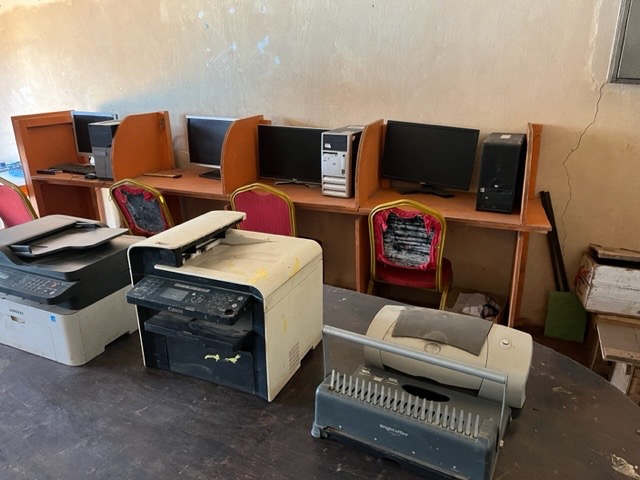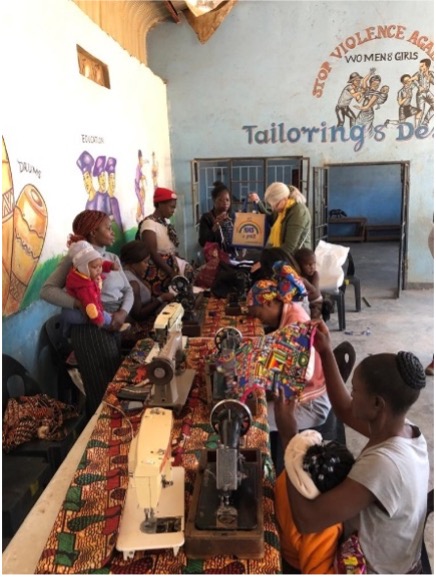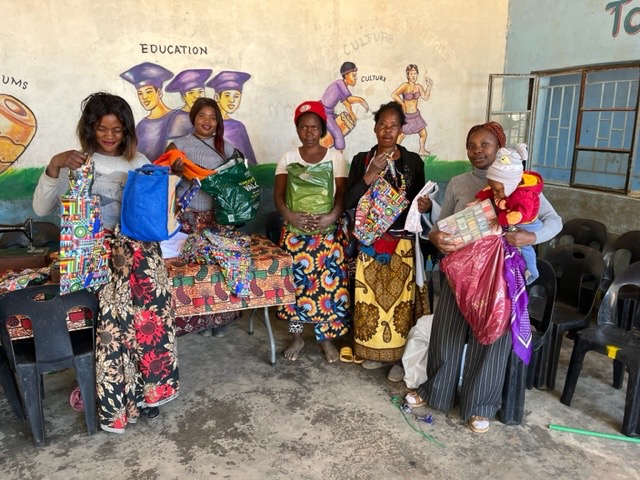On 11 July 2023 we (Helen Ayles and Rosie Hutchinson) visited the Heal Project Transit House and then the School. Helen lives and works in Lusaka, and Rosie is visiting from the UK.
The Transit House is run by Jeannie Mulenga, seen here with Helen:
Jeannie is currently looking after 32 children whose families are unable to care for them. Most of the children currently at the home are girls, although there are also 4 boys, ranging in age from approximately 3 to 11 years of age. Those of school age attend a local school. The aim of the home is to provide a safe place for the children to live until they are old enough to move on to further education or training, or to return to their families. The Heal Project helps to fund food, and Jeannie ensures that the children also have medical care where necessary.
The house was originally built some years ago and is now in need of some refurbishment. There are plans to refurbish the electrics and the bathroom facilities. One of the projects already underway is building a new outdoor kitchen extension – the floor had just been laid, and 2 new sinks installed.
The children entertained us with drumming and singing.
To help raise funds they make and sell colourful papier-mâché bowls and pictures.
After visiting the Transit Home we went to Ngombe Compound to visit the Heal Project School, to meet Racheal (Head Teacher). As we are no longer able to provide as much funding as in previous years, the number of teachers has been reduced to 4 (from 8), but there are still approximately 280 children attending, split into classes by age group, some attending in the morning and some in the afternoon.
The school buildings are in relatively good condition, although some plumbing work is necessary in the toilets, as currently there is only 1 girls toilet and 1 boys toilet in operation.
The school has its own borehole with a pump, so here are some of the children washing their hands prior to lunch.
As part of the school day each child receives a meal – for many of the children attending this will be their only meal of the day. On the menu on the day we visited was N’shima (a traditional porridge made of maize meal) with soya chunks. Lunch is cooked on site by a team of women in the kitchen and then the children queue up to be given their portions, before eating them in a spare classroom. The school has a vegetable plot where they grow greens – some had just been planted when we visited.
The school caters for grades 1-7, and there is a nursery class taking children from age 3-5. The nursery class were being taught maths when we visited.
The middle school class were also doing maths and the senior class were doing social science:
The school has a computer room equipped with 2nd hand computers etc donated by various local organisations, and some tablets that were bought 10 years ago using a donation. However, they would like to add to the number of devices available.
Also based at the school is a women’s sewing group – the morning group were there when we visited making reusable shopping bags which they sell at local markets for 50 Kwacha (£2.50). In the afternoon a large group of up to 20 women attend. In previous years the Heal Project shipped the sewing machines out to Zambia, this time we took supplies of fabric, scissors, needles, cross stitch kits etc with us, which were very gratefully received.
